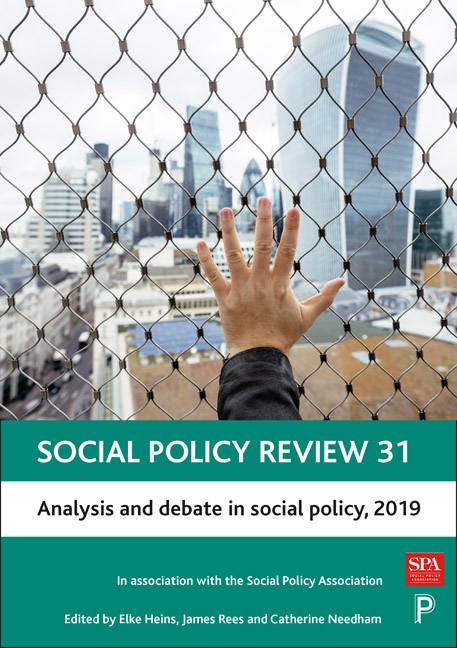9 - Local variations in implementing energy-efficiency policy: how third sector organisations influenced cities’ responses to the Green Deal
Published online by Cambridge University Press: 30 April 2022
Summary
Introduction
Between 2011 and 2016, the UK Coalition government engaged in a significant effort to encourage owner-occupied households to retrofit their properties in order to improve their energy efficiency and contribute to the UK's targets for reducing carbon emissions, improving energy security and boosting economic development. The ‘Green Deal’ – a finance mechanism and accreditation scheme for suppliers and installers – and the Energy Companies Obligation (ECO) – a legal obligation on energy companies to fund energyefficiency measures – were the dominant policies of the time, alongside a growing localism agenda. During this time, responsibility for implementing Green Deal policy was passed to local coalitions of actors, including local authorities, third sector organisations (TSOs) and private companies. These coalitions were encouraged to test the many facets of Green Deal-related policy at various local levels through localised experimentation. One of the key roles that the government perceived for TSOs in the delivery of the Green Deal was in engaging householders with energy efficiency through promotions, demonstrations of energy-efficient homes and advice (DECC, 2011).
This chapter reflects on three contrasting Green Deal schemes in Bristol, Birmingham and Manchester in which despite the same national policy context, coalitions of actors produced dramatically different responses. It explores the particular contribution that TSOs made in each place, illuminating the influences that third sector actors such as cooperatives, charities, social enterprises and voluntary groups had on producing context-specific responses to national policy. TSOs often did occupy expected roles in promoting and advising on retrofit, but they also had more influential roles in providing services, shaping the scale and nature of the responses, and representing multiple local interests. These reflections are relevant not only for energy-efficiency policy, but also for wider energy policy and other social policy fields engaging in the local delivery of policy through local multi-stakeholder networks, with differing and sometimes contested interests and priorities.
The impetus for domestic retrofit
There are approximately 22 million households in England, of which 83 per cent are in urban areas (DCLG, 2014). Around 90 per cent that stand now were built more than 20 years ago (DCLG, 2014), at times when housing was generally not constructed with energy efficiency as a priority.
- Type
- Chapter
- Information
- Social Policy Review 31Analysis and Debate in Social Policy, 2019, pp. 197 - 220Publisher: Bristol University PressPrint publication year: 2019



